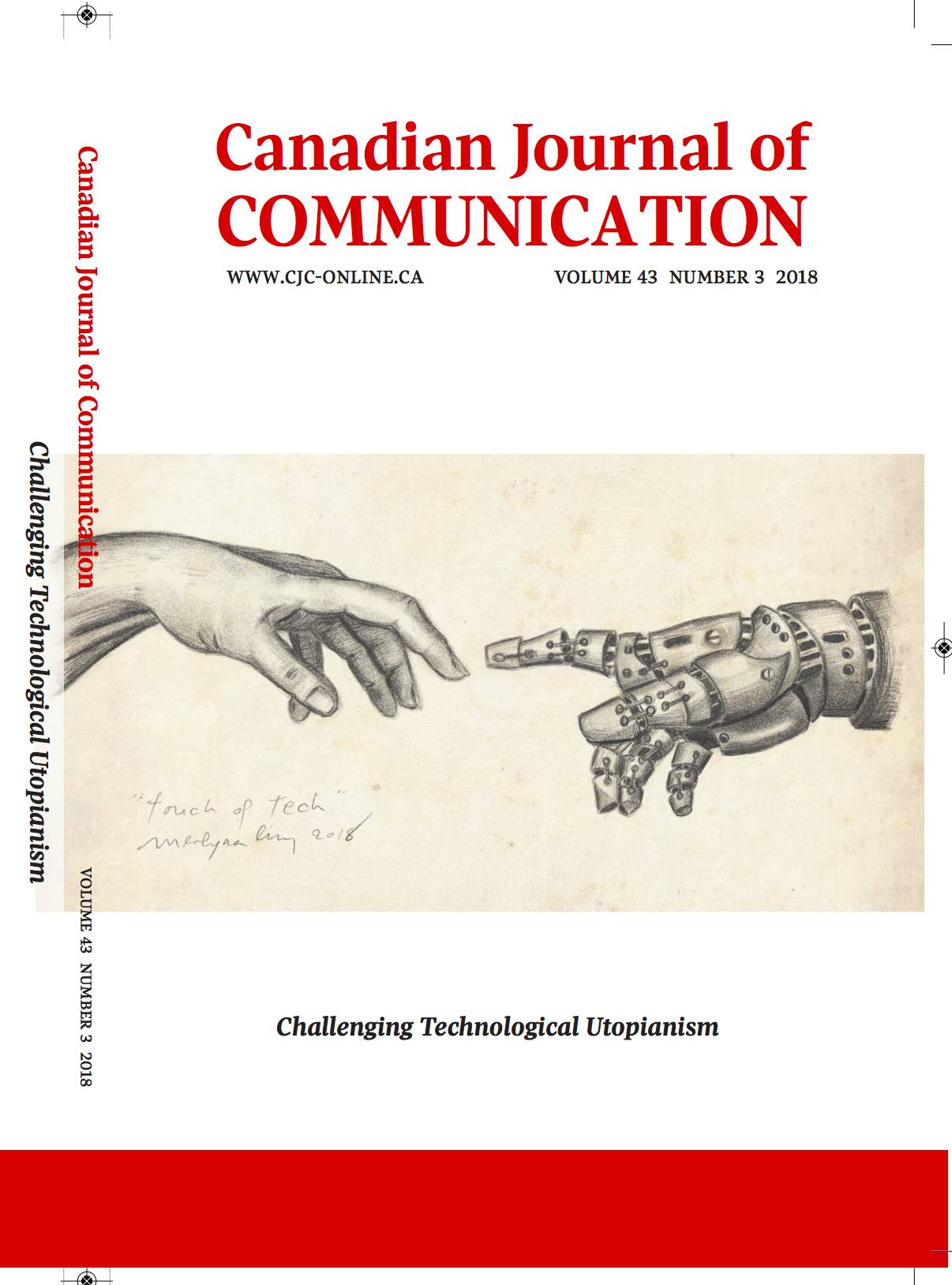Challenging Technological Utopianism
A special issue on “Challenging Technological Utopianism” in the Canadian Journal of Communication, Volume 43 No. 3, is just published.
This issue is edited by ALiGN Media Lab Director Merlyna Lim, and with contributions from: Bivens & Hogue; Dobson & Knezevic; Mitchell & Lim; Knezevic, Pasho, & Dobson. All of these contributors are affiliated with the communication program at Carleton University’s School of Journalism and Communication in Ottawa, as graduate students and faculty members (as well as ALiGN researchers and affiliates). This special issue is in celebration of the 40th anniversary of the program and it offers notable insight to mark the occasion.

Table of contents:
Guest Editorial:
Articles:
- “’Ain’t nobody got time for that!’: Framing and Stereotyping in Legacy and Social Media”
- “Too Crowded for Crowdsourced Journalism: Reddit, Portability, and Citizen Participation in the Syrian Crisis”
- “Seal Hunts in Canada and on Twitter: Exploring the Tensions between Indigenous Rights and Animal Rights with #Sealfie“
- “Programming Sex, Gender, and Sexuality: Infrastructural Failures in ‘Feminist’ Dating App Bumble”
- “Unveiling Saudi Feminism(s): Historicization, Heterogeneity, and Corporeality in the Women’s Movements”
All articles in this special issue break away from the preoccupation with the role and impact of technology, prone to overlooking socio-political contexts, neglecting history, and decentring human agency. They do so by decentring technology and, instead, paying attention to socio-political and historical contexts, and centring human experiences and agency. Collectively, they offer multiple epistemological insights into the multifaceted relationship between technology and society. Utilizing diverse methods of analysis and informed by theories and knowledge from varied perspectives—such as critical communication studies, humanities, feminist studies, and platform studies—they generate nuanced narratives that highlight the heterogeneity and complexity of technology-society relations. Dealing with pressing social issues such as inequality, justice, sexism, racism, and poverty, these articles also reveal ontological relationships between technology and identities: gender, sexuality, class, and race. Together, these articles attempt to disturb the persistence of the binary opposition of the utopia-dystopia, optimist-pessimist, and positive-negative views of technology.